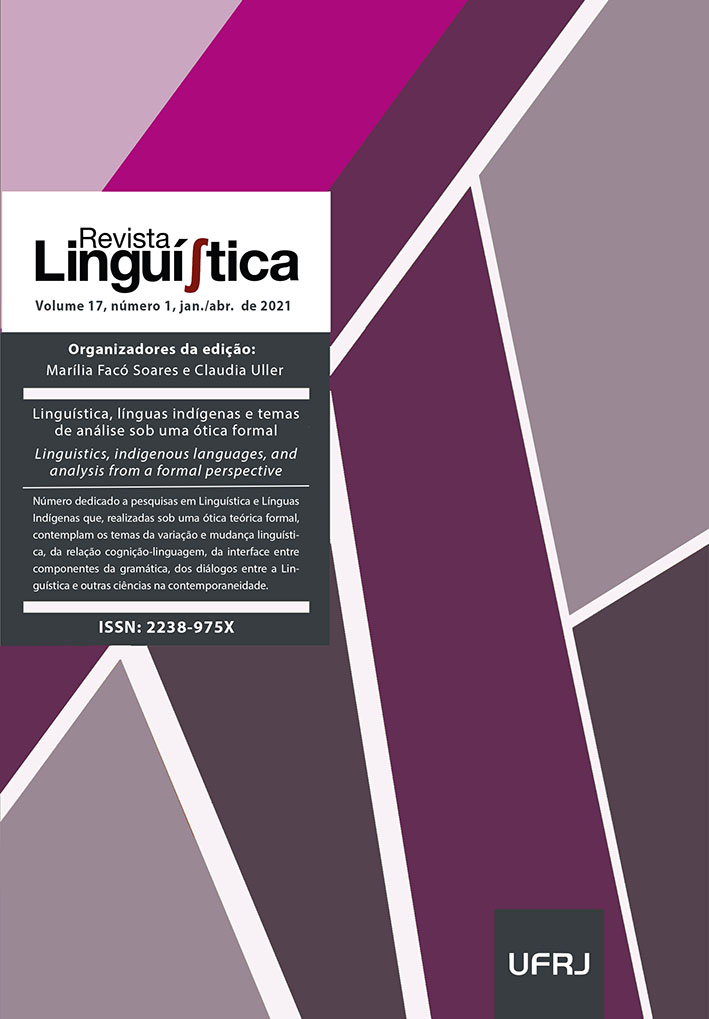The development of the verbal counting system: from non-verbal to verbal tallies
DOI:
https://doi.org/10.31513/linguistica.2021.v17n1a54117Keywords:
numbers, counting, cognitive development, language learning.Abstract
Humans are born with not one but two systems that create representations with numerical content. Unlike verbal counting, neither of them defines numerical symbols in terms of their positions in an ordered list. Together with other considerations, this led many to believe that, when children learn how to use counting to define number word meanings, they solve what seems like an impossible problem: they learn numerical principles that cannot be defined in terms of the numerical representations available to them at the time. We propose that there may be more continuity between what children learn when they learn how to use counting to define number word meanings and some of the principles available to them prior to language learning than previous researchers have thought. Specifically, we propose that children learn how to use counting to define number word meanings by thinking that counting is a tallying system just like one of the two core number systems – namely, parallel individuation (which we refer to as “mental tallies”). That is, when they learn the verbal counting system, children learn to define the meaning of expressions like “n X’s” where n is a number word (e.g., “five”) and X is a noun phrase (e.g., “old chairs that come from Sweden”) as a collection of Xs that match one to one with a count that ends with “n.” We argue that this view of the acquisition of the meaning of number words and counting provides a better account of the way non-verbal representations of number are integrated with verbal counting and of children’s knowledge of the meaning of number words both before and after they learn how verbal counting represents numbers than any other view proposed before.
Downloads
Published
Issue
Section
License
Authors who publish in the Revista Linguí∫tica agree with the following terms:
The authors maintain their rights, ceding to the journal the right to first publication of the article, simultaneously submitted to a Creative Commons license permitting the sharing with third-parties of published content as long as it mentions the author and its first publication in the Revista Linguí∫tica.
Authors may enter into additional agreements for the non-exclusive distribution of their published work (for example, posting in online institutional or non-profit repositories, or book chapters) so long as they acknowledge its initial publication in the Revista Linguí∫tica.

The journal Revista Linguí∫tica is published by the Post-Graduate program in Linguistics of UFRJ and employs a Creative Commons - Attribution-NonCommercial 4.0 International (CC-BY-NC).









